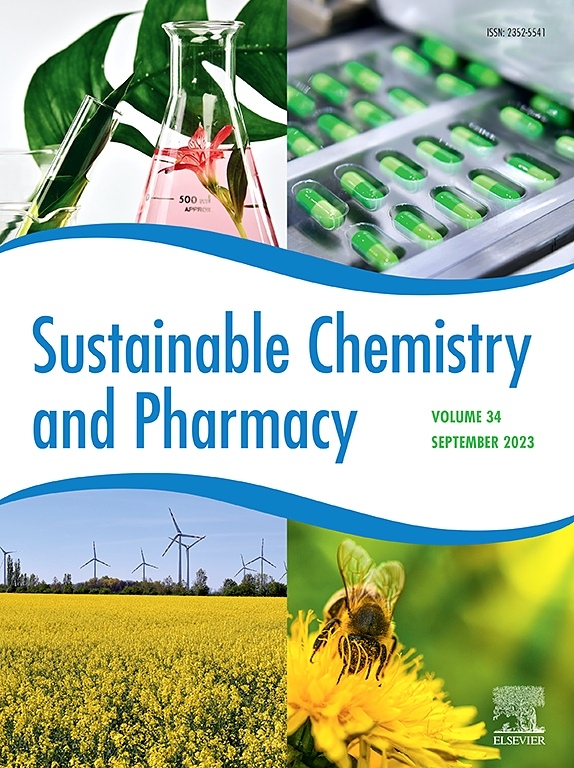Furans derived from lignocellulosic biomass as renewable substrates in multicomponent reactions
IF 5.5
2区 化学
Q2 CHEMISTRY, MULTIDISCIPLINARY
引用次数: 0
Abstract
Multicomponent reactions (MCRs) are a powerful and efficient tool for organic synthesis, where three or more substrates react to form a more complex product in a single step. They have been essential for the synthesis of new drugs and materials, and are widely promoted from the perspective of sustainable chemistry, since, compared to chemical processes carried out in stages, they save time and resources, in addition to generating less waste. However, furan compounds derived from lignocellulosic biomass are still little explored in MCRs as substrates. This is particularly promising because these compounds are renewable and lignocellulosic biomass is one of the most abundant raw materials in the world. Furthermore, in general, research on innovation in chemical processes has been moving towards the replacement of chemical inputs derived from petroleum by materials from renewable sources. This short review highlights the key aspects of the use of furans derived from lignocellulosic biomass as substrates in MCRs.

在多组分反应中作为可再生底物从木质纤维素生物质中提取的呋喃
多组分反应(mcr)是一种强大而有效的有机合成工具,其中三个或更多的底物反应形成一个更复杂的产物在一个单一的步骤。它们对于新药物和新材料的合成至关重要,并且从可持续化学的角度得到广泛推广,因为与分阶段进行的化学过程相比,它们节省了时间和资源,而且产生的废物更少。然而,从木质纤维素生物质中提取的呋喃化合物在mcr中作为底物的研究仍然很少。这是特别有希望的,因为这些化合物是可再生的,木质纤维素生物质是世界上最丰富的原料之一。此外,总的来说,关于化学过程革新的研究一直在朝着用可再生资源的材料取代石油的化学投入的方向发展。这篇简短的综述强调了从木质纤维素生物质中提取的呋喃作为mcr中底物的关键方面。
本文章由计算机程序翻译,如有差异,请以英文原文为准。
求助全文
约1分钟内获得全文
求助全文
来源期刊

Sustainable Chemistry and Pharmacy
Environmental Science-Pollution
CiteScore
8.20
自引率
6.70%
发文量
274
审稿时长
37 days
期刊介绍:
Sustainable Chemistry and Pharmacy publishes research that is related to chemistry, pharmacy and sustainability science in a forward oriented manner. It provides a unique forum for the publication of innovative research on the intersection and overlap of chemistry and pharmacy on the one hand and sustainability on the other hand. This includes contributions related to increasing sustainability of chemistry and pharmaceutical science and industries itself as well as their products in relation to the contribution of these to sustainability itself. As an interdisciplinary and transdisciplinary journal it addresses all sustainability related issues along the life cycle of chemical and pharmaceutical products form resource related topics until the end of life of products. This includes not only natural science based approaches and issues but also from humanities, social science and economics as far as they are dealing with sustainability related to chemistry and pharmacy. Sustainable Chemistry and Pharmacy aims at bridging between disciplines as well as developing and developed countries.
 求助内容:
求助内容: 应助结果提醒方式:
应助结果提醒方式:


